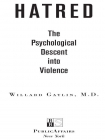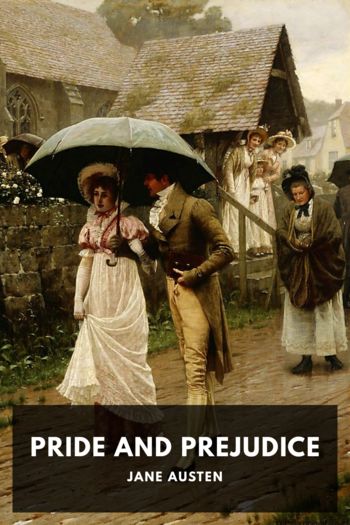Hatred by Willard Gaylin (best manga ereader txt) 📗

- Author: Willard Gaylin
Book online «Hatred by Willard Gaylin (best manga ereader txt) 📗». Author Willard Gaylin
As we discuss the feeling component of hatred, one must keep in mind that the feeling is only one ingredient in the pathological relationship that defines hatred. Even when we all feel the same, it is still not the same thing. To take a homely example, while the intensity of road rage may astonish us, particularly if we are the ones experiencing it, we are still unlikely to become suicide bombers using our cars to destroy the enemy along with ourselves. The “if I only had a gun” feeling on the highways of America is a metaphoric expression. It does not mean that if we had the gun, we would use it. Those few that would are a pathological minority.
Further, anger is different from hatred by the very ephemeral nature of the feeling. Most of us, even moments later, will not remember the white Pontiac or the man driving it or the fact that he “gave us the finger.” After a brief “do you believe that guy?” we will continue our conversation with our passenger right where we left off. Since rage does not compel the paranoid shift associated with hatred, no obsessive involvement is present, no ongoing passionate attachment. The driver of the white Pontiac is not an enemy and will be quickly forgotten.
Aristotle brilliantly distinguished anger from hatred: “Whereas anger arises from offenses against oneself, enmity may arise even without that; we may hate people merely because of what we take to be their character. . . . Moreover, anger can be cured by time; but hatred cannot. . . . And anger is accompanied by pain, hatred is not.14
Pioneering psychologist Gordon Allport, in his monumental book, The Nature of Prejudice—close to five hundred pages in the abridged paperback edition—devoted just a brief three pages to the nature of hatred, but he got it right. He clearly distinguished between the various forms of prejudice and hatred. Then drawing on this very discussion in Aristotle, he, too, distinguished hatred from the anger with which it is always associated. He agreed that it is the sustained nature of hatred that distinguishes it from the volatile and often passing nature of anger. As he is an interpersonal psychologist, he intuitively latched onto another essential distinction between the two.
Allport stated that anger is an emotion, and by implication purely an emotion, “whereas hatred must be classified as a sentiment—an enduring organization of aggressive impulses toward a person or toward a class of persons.”15 In other words, the second element of hatred is a profound, if negative, attachment to another person or group. Although Allport did not emphasize or even identify the paranoid shift essential to hatred—he was, after all, a psychologist studying normal personality, not a psychiatrist involved with mental illness—he, nonetheless, came very close: “Since it [hatred] is composed of habitual bitter feeling and accusatory thought, it constitutes a stubborn structure in the mental-emotional life of the individual. By its very nature hatred is extra-punitive, which means that the hater is sure that the fault lies in the object of his hate.” This is precisely what Sigmund Freud referred to as “projection” and what I have called the “paranoid shift.” Allport continued: “So long as he believes this he will not feel guilty for his uncharitable state of mind.”16 This absence of guilt, I suspect, is why Aristotle believed that hatred does not involve pain, whereas anger does. But doesn’t the person who is exercising an action of righteous rage feel guilt-free, too?
Before elaborating on what distinguishes hatred from anger, it is advantageous to appreciate what they have in common, the emotion. The feeling that is experienced in road rage is fundamentally identical to the feeling in hatred.
Anger as a Model
Few readers will have experienced hatred as I have defined it. Every reader, without exception, has experienced anger. Since the conditions that elicit anger are the same as those that support hatred, the feeling of anger can be utilized as a stand-in to build a model of hatred.
We all know how feelings color and determine our experiences. We often feel “good” for indefinable reasons; a feeling of joy or well-being needs no analysis or justification. We may, in contrast, find ourselves in a state of anguish or despair for no apparent reason. Here, too, the realistic basis for the shift of feeling may not be all that apparent. Nor for that matter may it be rational. Still, our feelings, not the realities, will determine the quality of our lives—the way we value our existence. The irrational and inappropriate external events that precipitate suicide attempts will horrify the objective observers. More important, when the suicide attempt is unsuccessful, the survivor may, himself, arrive at the same state of bewilderment confronting the trivialities that once convinced him to terminate his life.
Feelings do more than quantify the joy or pain of our everyday life: They also are directives and stimuli, prompting us to specific behavior and responses. Our emotions inform and guide our conduct. As we tend to avoid the sentient experiences of pain and seek pleasure, we listen to our emotions to guide us to sources of pleasure and avoidance of pain. Feelings direct our actions more than we care to admit. We like to think of ourselves as rational animals, but students of human behavior never underestimate the power of the emotional in influencing behavior.
Human beings, both blessed and burdened with an intelligence and a freedom from fixed instinct unparalleled in the animal kingdom, are constantly faced with important choices. Animal lovers insist that animals too must make choices. Whether to eat the mango or the papaya first is of course a choice, but not the kind of significant choice that humans often face. Human beings may decide not to eat anything in the presence of hunger. Despite the drive of intense hunger, they may refuse to eat in order to conserve food for others, or in order to apportion it in





Comments (0)